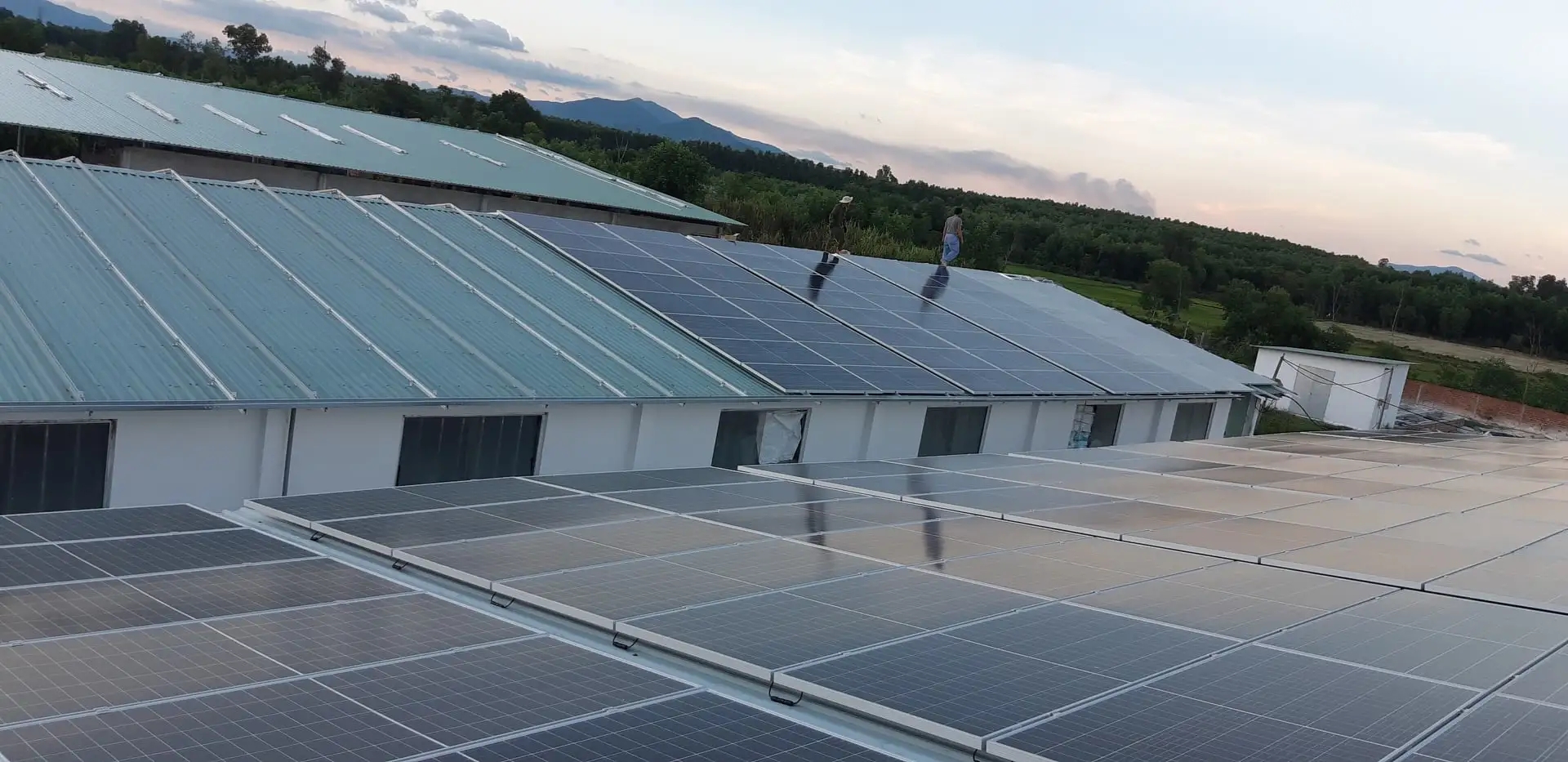- All
- Product Management
- News And Information
- Presentation
- Enterprise Branch
- FAQ
- Enterprise Video
- Enterprise Atlas
California New Rooftop Solar Policy to Boost the Development of Energy Storage Enterprises
Release time:
2023-07-04 00:00

California has reformed its residential solar policy, increasing the price difference between peak and off-peak electricity tariffs for solar energy.
This move encourages homeowners to equip solar systems with home energy storage systems, promoting the transformation of solar manufacturing companies and the development of battery storage enterprises. Solar and storage providers are adapting to this policy shift.
The state's home storage installation capacity might double this year, as California has abandoned net metering and completely reformed incentives for rooftop solar owners.
This is the second in a series of reports exploring the impact of changes in California's residential solar policy.
Due to a major policy adjustment, California's top-ranked rooftop solar industry faces an uncertain future. However, its future will definitely involve more batteries.
With the end of solar net metering on April 15th in California, battery storage suppliers are eager to meet the emerging demand. The new regulations reward solar power fed into the grid based on the real-time value of rooftop solar to the electricity system.
Practically, solar power supplied on sunny days earns little, while that supplied during high-demand nights yields greater returns. Homeowners will need storage facilities to store solar energy for profitable late-night peak periods.
Even with a potential decrease in overall rooftop solar sales, overall sales of home storage systems may still increase.
Analysts expect a 38% decrease in California's residential solar installations in the first year of the new rule in 2024, enough to cause a 3% decline in the total U.S. home solar installations. However, the proportion of home storage in California's home solar transactions is predicted to rise from the current 11% to over 80% by 2027. California installed 251MW of home storage in 2022, and this number is expected to double this year.
Now is a prime time to become a battery supplier. The speed and smoothness of California's rooftop solar suppliers' shift to a battery-priority strategy is still uncertain. This implies the need for more complex technology and a set of more complex rules for customer communication. Larger companies like Sunrun and Sunnova are more easily adaptable in this regard than smaller installers. Successful transformation would enable homes to play a more varied role in supplying clean energy when the grid needs it most.
Over the past two years, rooftop solar companies have collectively contributed more clean energy capacity to California's grid than any other sector. To continue pushing the industry towards achieving California's climate goals, storage suppliers need to scale up production and provide cost-competitive storage products that solar suppliers' customers want to buy.
Their feedback could resonate beyond California.
"The enactment of California's incentive policy on April 15th lays the groundwork for other regions across the country," said Linh Tran, now the Vice President of Product Marketing at manufacturer FranklinWH. Before this, the U.S. had set national standards for proactive rooftop solar policies; now, it has abandoned old rules, setting a new example for other states.
California is not the first to cancel incentive measures in a booming rooftop solar market. Hawaii stopped rooftop solar electricity in 2015. Germany significantly reduced grid feed-in tariffs in 2010. Australia imposed hefty tariffs on solar energy in the late 21st century and sharply reduced them a few years later.
German home energy storage provider Sonnen not only experienced this change in Germany but also built a complete business around it. The company designed robust battery modules for daily cycling to fully and efficiently utilize rooftop solar, even bidding into Germany's electricity wholesale market and getting paid like a mini power plant. These batteries don't just supply solar-generated electricity to the grid, regardless of need, but turn homes into responsive participants in the broader electricity system.
Blake Richetta, CEO of Sonnen USA, said, "If we look at others around the world, we find that this is a pattern that grids usually follow, so it's nothing new." He added that now California is "freed from the constraints of net metering," he feels "excited" about the future.
However, where regulators changed rooftop solar rules, it caused huge losses to the nascent solar installation industry. With the sudden cancellation of incentives, the "lower your electricity bill" slogan disappeared; the number and speed of installations usually dropped. It took years for solar battery supply to inject new vitality into these markets. If policymakers care about employment and clean energy progress, California should avoid repeating this pattern.
But California differs from those who cut subsidies in one key aspect: its change occurs when home storage has already passed its infancy. Storage is still far from being adopted by the mass market, but past sales depended on how many Powerwalls Tesla wanted to ship in a particular quarter, and now more and more well-capitalized companies are selling products with years of real-world experience.
In addition to Tesla and Sonnen, customers can look to several companies, including solar microinverter leader Enphase with an expandable battery line; another leading rooftop solar inverter manufacturer, SolarEdge; Korean battery manufacturer LG; traditional backup generator company Generac; or newcomer FranklinWH, specializing in whole-home household storage. A startup called Lunar Energy raised $300 million from investors including solar giant Sunrun to design a new type of home battery from scratch.
Other startups are solving different pain points: selling and delivering batteries to customers.
A new company called Haven was established in Southern California to help families buy batteries in the new regulatory environment and announced a $4.2 million seed round on April 11th. Haven co-founder and Chief Product Officer Jeff Chapin previously co-founded online mattress company Casper. Haven's goal is to simplify the home battery purchasing experience in a similar way, requiring "weeks instead of months," said CEO Vinnie Campo. Customers can use Haven's software service to pick the right battery for their needs, and the company will contact vetted electrical contractors for installation.
Campo said in an interview with Canary Media, "(The change in net metering) will shift from a single solar installation to solar and storage. [...] We think we can be a good partner for mid and small-sized sales representatives and installers."
Different battery suppliers—and larger solar installers themselves—are trying different ways to strike deals with customers.
Solar installer Sunrun launched a new type of solar home storage product called Shift, reducing the complexity of backup power to lower costs; instead, batteries are used to shift solar-generated electricity to later times, a way to save customers money in the new, harsher environment.
This represents a break from past marketing strategies, as Californians used to buy home batteries mainly for backup power during outages.
In contrast, Sunnova is offering free batteries to new solar customers in California, saying that resilience backup power is a key part of attracting customers. FranklinWH agrees—after all, "WH" stands for "whole home."
"People still want their solar to work during outages," said Tran from FranklinWH. "I think we shouldn't shift consumer attention away from this."
Sonnen also offers backup power, but its messaging primarily relies on getting customers the most economical return through smart storage systems; it's been doing this for years in Germany, and this experience becomes more important for California consumers.
Richetta said the best performance of a solar storage system requires not just maximizing one's own solar production. Sonnen batteries can predict the weather, and if the next day's solar doesn't look sufficient to cover expensive nighttime, the battery will partially use cheap grid power the night before. Using grid power to supplement solar production utilizes the new independent storage tax credit in the Inflation Reduction Act, which allows batteries to charge from the grid, not just from solar,
without sacrificing the substantial federal incentives.
As a manufacturer, Sonnen acquires customers through partnerships with solar distributors. In California, its primary partner is Baker Electric Home Energy. Richetta mentioned that so far, the installer in the San Diego area has sold Sonnen home storage to 300 households through its ChargeOn brand. Sonnen expects to deploy 3,000 home storage systems with Baker in 2024, the first full year without net metering. Richetta predicts that by 2025, Sonnen's total sales in California could exceed 20,000 units.
Sonnen also operates these batteries as a virtual power plant, turning its demand reduction services into opportunities across multiple electricity wholesale markets. Participating households earn $150 to $300 annually, gradually assisting the broader energy system. This can be interpreted as a nice little reward for home storage owners or as evidence that California needs to increase its payments for distributed energy resources to help the grid. In states like Hawaii and Utah, homes contributing home storage to grid services can receive thousands of dollars in upfront payments. This demonstrates the significant value home storage can provide if policymakers take it seriously.
Richetta says Baker has proposed training solar contractors in other parts of the state and licensing them for the ChargeOn brand. Alternatively, other companies can represent their own solar home storage and utilize Sonnen's virtual power plant network, SonnenConnect.
Ultimately, solar salespeople need to figure out how to pitch home storage in a way that resonates with customers. They might rely on bill savings, backup power, grid services, or a combination of these factors.
Solar installers who want to remain open must stay informed about market developments in real-time. Their work, as well as the progress of clean energy in California, depends on a steep learning curve.
News












